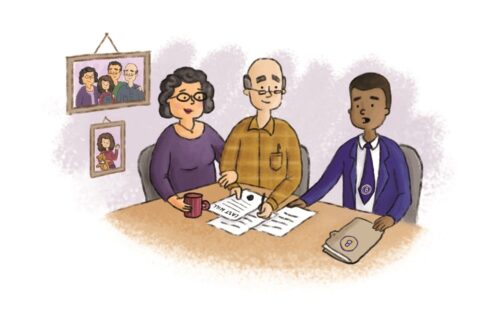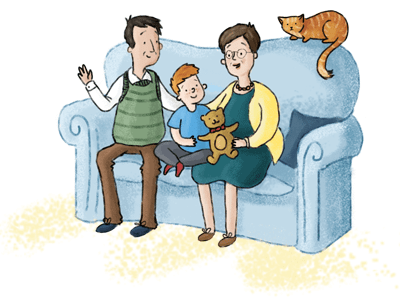
A Deed of Variation is an instrument by which, after a death, a beneficiary can divert their entitlement under a Will or Intestacy to somebody else.
The effect of using a Deed of Variation rather than the person just gifting their legacy or entitlement to a third party is that there are no tax consequences for the original beneficiary, it is deemed as though the deceased made the gift. The terms of the Deed of Variation are ‘written back’ into the Will or alter the Intestacy Rules for Inheritance Tax and Capital Gains Tax purposes.
There are a number of reasons for using Deeds of Variation such as providing for someone who had been excluded from a Will, taking account of differences in the financial positions of beneficiaries or just to pass assets on to the next generation. Many people will use Deeds of Variation for their own estate planning purposes, they may not need the money themselves and would only be inflating an already sizeable estate so it is better to skip themselves and pass it straight on to their children or grandchildren.
Often people have not reviewed their Wills for many years and the laws have changed meaning that there are benefits to passing the estate in a different way to take advantage of new tax rules, this is another common reason for doing Deeds of Variation, it is possible that a Will may be less tax efficient at death than it was when it was signed.
A Deed of Variation must be in writing and although HM Revenue & Customs suggest a letter would suffice, a formal deed is usually prepared as there are many strict conditions that have to be met some of which are:
-
- The variation must be made within 2 years of the death
- It must clearly identify the part of the estate being varied and who is benefitting from the variation
- It must be signed by all beneficiaries who are giving up their rights to some or all of their inheritance/entitlement
- It must include special statements regarding Inheritance Tax and Capital Gains TaxDeeds of Variation are retrospective and the new beneficiary is treated as having been entitled from the date of death. The only area where this differs is for care home fee planning. If a person gives up their right to an Inheritance by way of a Deed of Variation, the local authority could view this as self-deprivation of assets and may still wish to count this when assessing you for care home fees.In the past Deeds of Variation have come under review in the budget statement as they can be used to save on Inheritance Tax. While they are still around and we are able to use them we suggest you do if appropriate.
How we can help
Contact Laura Stansfield, Sue Darlington or Susanne Furness in our Wills, Probate & Planning for the Future department to discuss how one of our team of experts can help guide you through this process.Email:lstansfield@bromleys.co.uk; sdarlington@bromleys.co.uk sfurness@bromleys.co.uk
Tel: 0161 330 6821
Alternatively, you are welcome to attend any of our free legal surgeries. Please click here for dates and times – No appointment necessary.
The contents of this article are intended for general information purposes only and shall not be deemed to be, or constitute legal advice. We cannot accept responsibility for any loss as a result of acts or omissions taken in respect of this article.










